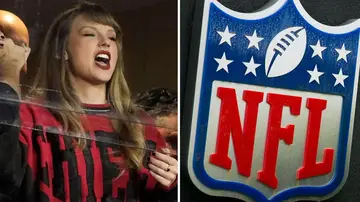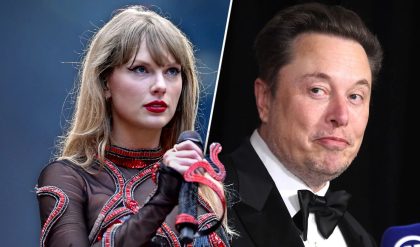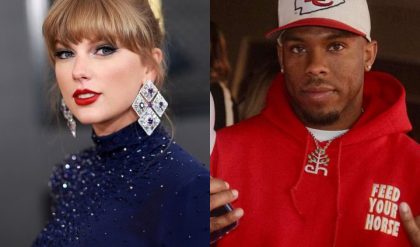In a startling twist, Taylor Swift’s outspoken political activism, often referred to as her “wokeness,” is being blamed for a financial hit to the NFL, with some claiming it has cost the league nearly $1 billion in revenue. As the pop star’s involvement with Kansas City Chiefs tight end Travis Kelce brought her even closer to the NFL fanbase, her vocal support for progressive causes seems to have stirred controversy, potentially alienating a significant portion of the league’s core audience.

Swift, who has been unapologetically political in recent years, speaking out on issues like LGBTQ+ rights, racial justice, and women’s reproductive health, has become a polarizing figure. While many fans admire her for using her platform to promote social change, others feel her political views are out of place in the world of sports, where fans typically seek entertainment rather than activism.
Reports suggest that a portion of the NFL’s traditionally conservative fanbase has become frustrated with the league’s growing association with Swift, particularly in light of her influence on cultural and political matters. Some have speculated that this dissatisfaction may have led to reduced game viewership and declining merchandise sales, with the financial losses allegedly nearing $1 billion. However, it remains unclear how much of this decline can be directly attributed to Swift’s involvement versus other factors affecting the league, such as changing consumer habits or competition from other entertainment industries.
Critics argue that Swift’s values and progressive stances are at odds with those of many NFL fans. “She’s a brilliant artist, but her political agenda doesn’t belong on the field,” some have said, pointing to her endorsement of certain political candidates and causes as a reason for distancing themselves from the league.

However, Swift’s defenders argue that the artist’s influence is a net positive for the NFL, bringing new audiences, particularly younger fans, to the sport. They see her ability to merge entertainment and activism as a modern necessity, especially as younger generations expect their idols to take stands on important social issues.
Regardless of where one stands on the debate, it is clear that Swift’s presence in the NFL ecosystem has sparked intense discussions. As the relationship between politics, celebrity, and sports continues to evolve, the question remains: did Taylor Swift really “wreck” the game, or is this just another chapter in the ongoing cultural shift in professional sports?
For now, the impact of Swift’s influence on the NFL remains a subject of heated debate, with fans and analysts closely watching to see how this unfolding drama will affect the league’s future.





